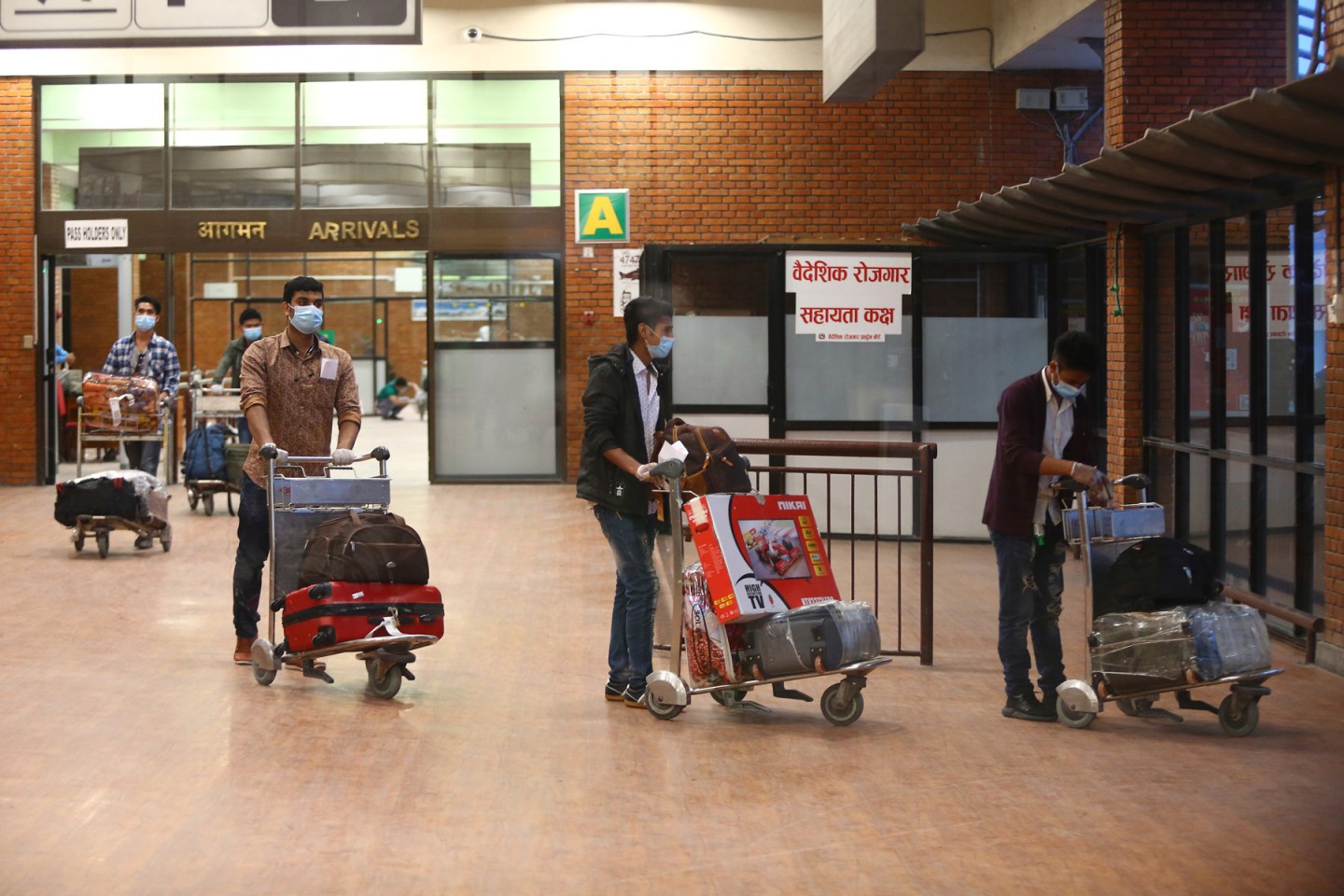KATHMANDU: If there is one of the most pressing issues before all three levels of government, employing the home returnees within the country can’t be denied at present. But sheer lack of data on who has what skills and interest is intriguing the governments.
It is not that the federal government lacks record on those migrant workers returned home from various countries following the pandemic of COVID-19. Now after their return, where are they engaged? Where do they want to work? What are their skills if government wants to create employments?
Although the governments of all three layers had announced the creation of jobs to the home returnees following the outbreak of COVID-19, people with any skill and knowledge are not identified yet. Similarly, training to those without skills is much awaited.
According to the latest statistics the Ministry of Labor, Employment and Social Security, the government rescued 1,32,825 migrant workers from abroad. Similarly, among 7,839 people applying for labor permit for the second or more time, only 1,659 have been provided the permit. A total of 514 persons applied for the labor permit for the first time when 363 persons got it.
This data shows that all of those returning home are not willing to go abroad for job again. However, disruption of air flight and border points might be one of the reasons behind it.
Moreover, the Ministry has registered 569,653 people jobless in the country. Among them, 39,730 have been given the jobs.
But, none has been provided skills oriented training. It is the government’s responsibility to provide jobs to those returned from abroad and waiting for income generation also to realize the national ambition of ‘Prosperous Nepal: Happy Nepali.’
On the other hand, Council for Technical Education and Vocational Training (CTEVT) which provides training for short term employment to 50,000 youths every year is not capable to address the present demand.
Information Officer at CTEVT, Anil Muni Bajracharya, said although the CTEVT had planned for a survey on need of skill and employment need among those returned from abroad, the growing cases of coronavirus impeded it.
Spokesperson at Education Ministry, Deepak Sharma, informed that efforts were underway for legal framework under the coordination of Open University Vice Chancellor Dr Lekhnath Poudel to address this situation.
The National Skill Testing Board has the goal of providing vocational training related to agriculture after mobilizing structures at the provincial and local levels and testing qualification, skills and capacity of the aspiring persons.
They would be provided training on infrastructure development, hotel management and health sector.
According to the analysis of the CTEVT, lifestyle of the people aspiring for a foreign job could be raised by launching skill-based projects through which they get technical and vocational employments as plumbing, carpentry, cooking and nursing, the jobs that are highly demanded and paid in foreign countries.
Stating that the home returnees were being studied by United Nations Development Program(UNDP) and the IOM, Dr Hari Pradhan, expert in technical and vocational education, stressed the need for a system to use skills and experiences of them.
Efforts in providing vocational skills and knowledge at school level in Nepal started in 2004 BS. There had been a provision that vocational education would be offered at basic level after incorporating agriculture, construction, tailoring and handicraft in the community school alongside other general subjects.
The report of the National Education Planning Commission, 2011 had theorized it. The CTEVT was formed for the development and expansion of technical and vocational education after the Technical Education and Vocational Training Council Act, 2045 was endorsed.
The CTEVT has targeted the expansion of equitable access to technical and vocational education and training and to increase quality, time-oriented and efficiency of technical education and vocational training system.
Under the CTEVT, there are seven provincial offices, 51 constituent schools and polytechnic, 20 partnership institutions, 534 community schools offering technical education program, 429 affiliated institutions at private level and 1,131 CTEVT affiliated institutions running short term vocational training.









Comment